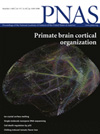-
How Climate Change May Speed Democratic Turnover, and Beyond a “Naïve” Understanding of Drought and Conflict
November 9, 2016 By Anam Ahmed In a recent paper published by Climatic Change, Nick Obradovich conducts the “first-ever” investigation into the relationship between rising global temperatures, electoral returns, and climate change. Using data from more than 1.5 billion votes cast across electoral contests held in 19 countries, he found that when the annual average temperature for a country rose above 70°F, there was a “marked” decrease in the number of votes received by incumbent officeholders. His models suggest that incumbent electoral losses could increase as temperatures climb, speeding the rate of democratic turnover. Research has shown that voters give primary consideration to the overall wellbeing of their communities when casting ballots. When people are doing well, both economically and psychologically, they tend to vote for incumbent politicians and their parties more frequently. “Ultimately, turnover – when directly related to politician performance – is vital to well-functioning democracy,” Obradovich writes. But these results suggest climatic events outside of individual politicians’ hands may also increase democratic turnover around the world, particularly in warmer, poorer economies reliant on agriculture.
In a recent paper published by Climatic Change, Nick Obradovich conducts the “first-ever” investigation into the relationship between rising global temperatures, electoral returns, and climate change. Using data from more than 1.5 billion votes cast across electoral contests held in 19 countries, he found that when the annual average temperature for a country rose above 70°F, there was a “marked” decrease in the number of votes received by incumbent officeholders. His models suggest that incumbent electoral losses could increase as temperatures climb, speeding the rate of democratic turnover. Research has shown that voters give primary consideration to the overall wellbeing of their communities when casting ballots. When people are doing well, both economically and psychologically, they tend to vote for incumbent politicians and their parties more frequently. “Ultimately, turnover – when directly related to politician performance – is vital to well-functioning democracy,” Obradovich writes. But these results suggest climatic events outside of individual politicians’ hands may also increase democratic turnover around the world, particularly in warmer, poorer economies reliant on agriculture. In a paper released by PNAS, Nina von Uexkull, Mihai Croicu, Hanne Fjelde, and Halvard Buhaug argue that the lack of consensus among researchers working on the connection between climate change and conflict is tied to the inadequate attention given to “the context in which droughts and other climatic extremes increase the risk of violent mobilization.” This is an essential consideration in order to move beyond broad generalizations and identify group motivations and vulnerabilities. The authors address the problem by analyzing the relationship between drought and conflict through a socioeconomic lens. They draw on recent conflict event data for Asia and Africa and combine it with data on ethnic settlement and agricultural land use. This allows them to examine how “politically relevant” ethnic groups respond to drought during growing seasons across a range of political and socioeconomic contexts. By approaching the issue in this context-sensitive manner, their results contradict previous “naive” models that have suggested drought has little impact on conflict. The authors suggest there is a reciprocal relationship between drought and conflict, in which “violent conflict and environmental shock constitute a vicious circle, each phenomenon increasing the group’s vulnerability to the other.”
In a paper released by PNAS, Nina von Uexkull, Mihai Croicu, Hanne Fjelde, and Halvard Buhaug argue that the lack of consensus among researchers working on the connection between climate change and conflict is tied to the inadequate attention given to “the context in which droughts and other climatic extremes increase the risk of violent mobilization.” This is an essential consideration in order to move beyond broad generalizations and identify group motivations and vulnerabilities. The authors address the problem by analyzing the relationship between drought and conflict through a socioeconomic lens. They draw on recent conflict event data for Asia and Africa and combine it with data on ethnic settlement and agricultural land use. This allows them to examine how “politically relevant” ethnic groups respond to drought during growing seasons across a range of political and socioeconomic contexts. By approaching the issue in this context-sensitive manner, their results contradict previous “naive” models that have suggested drought has little impact on conflict. The authors suggest there is a reciprocal relationship between drought and conflict, in which “violent conflict and environmental shock constitute a vicious circle, each phenomenon increasing the group’s vulnerability to the other.”Sources: Climatic Change, PNAS.
 A Publication of the Stimson Center.
A Publication of the Stimson Center.





